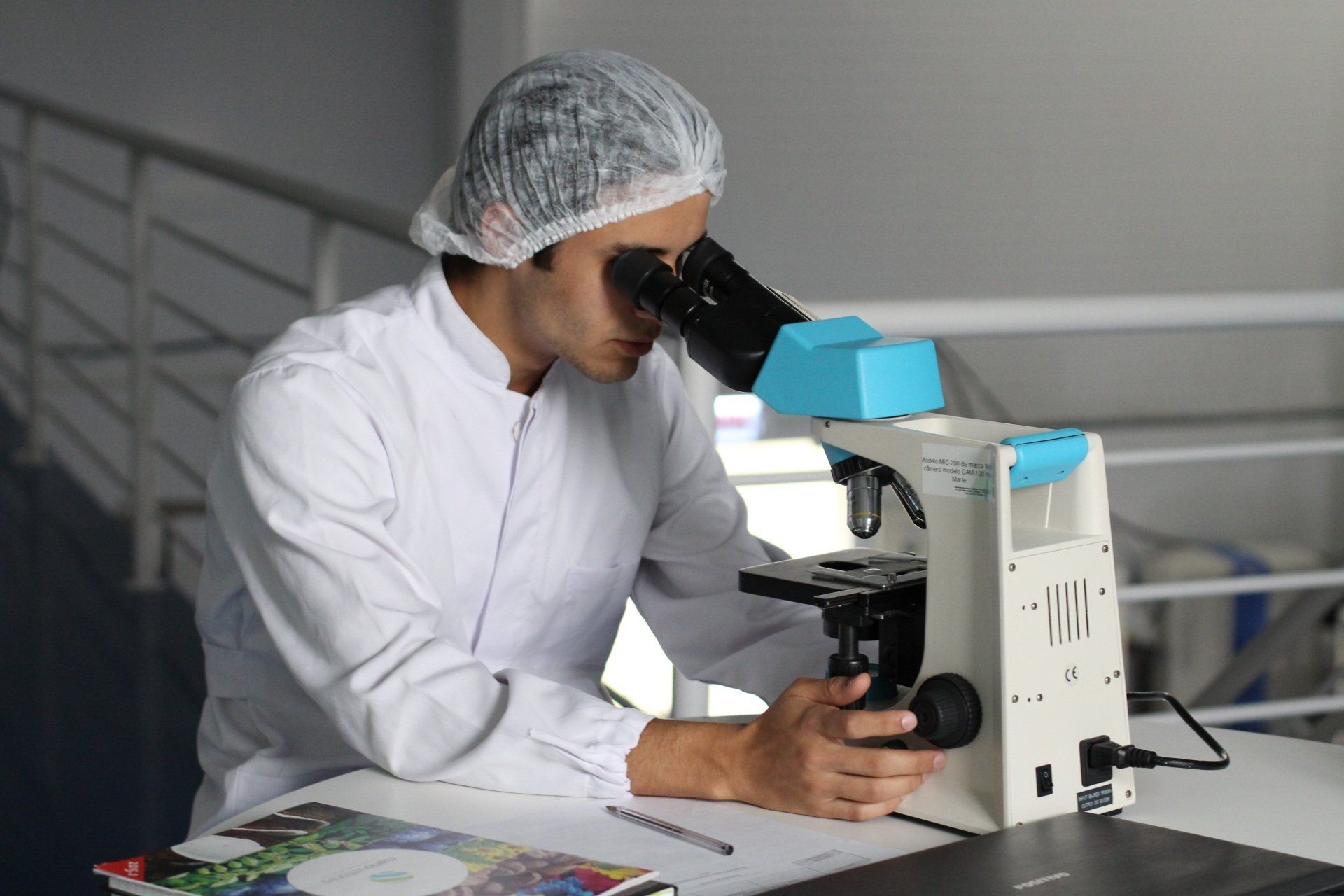Why You Need More Salt On A Low Carb Diet
Here's How To Avoid The Most Common Side Effects Of A Ketogenic Diet
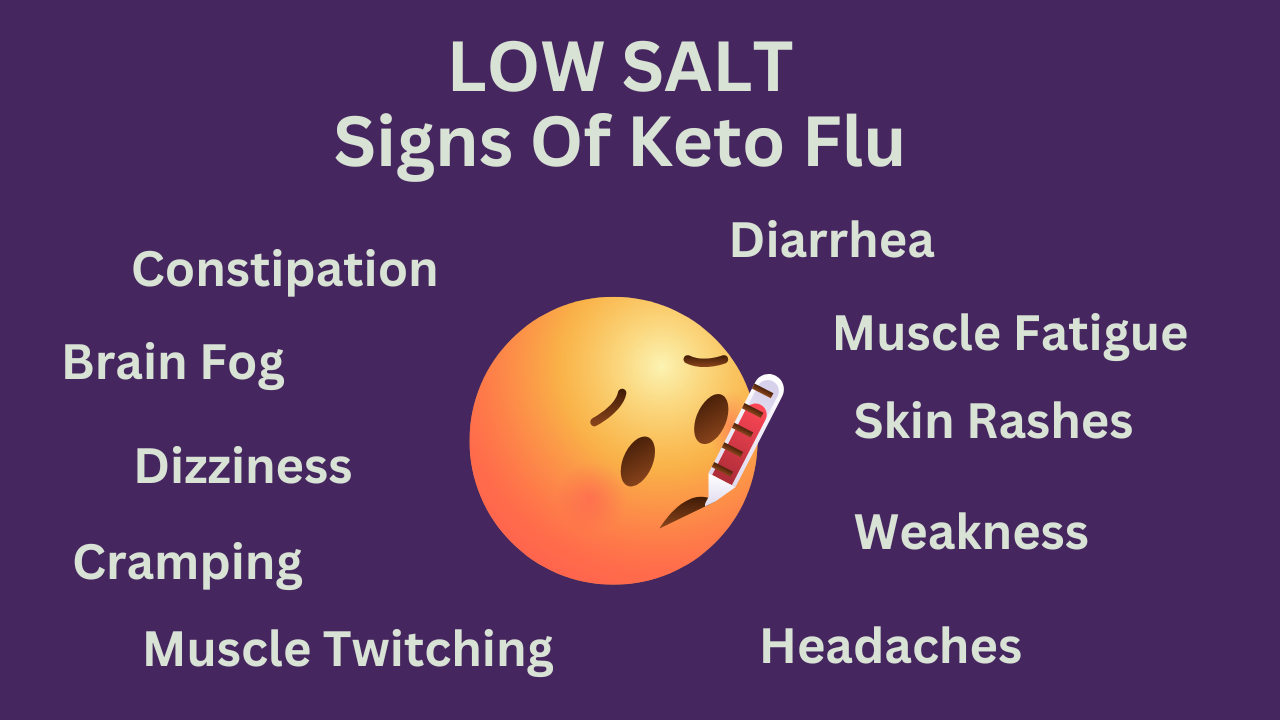
We have been misguided when it comes to salt...
Salt is an essential nutrient. Our body requires sodium (contained in salt) for all of our cells to function properly, especially our brain and nervous system. The human body cannot produce sodium, and therefore, it must come from the foods we eat and from the salt we put on our food.
When following a low carbohydrate diet plan, your kidneys become VERY efficient at excreting sodium and water from the body and experts say that increased salt is required for maintaining a optimal cellular function.
Salt works in conjunction with iodine, and other electrolytes such as magnesium, calcium and potassium. In Dr. Brownstein's book he explains that high blood pressure is not caused by salt, it is caused by eating salt that has been processed and therefore is void of minerals.
NOTE: Salt and sodium are not the same. Salt contains only about 40% sodium.
1 teaspoon (6 grams) of salt = 2.4 grams of sodium
Most people on a low carb diet will feel best when consuming 3-7 grams of sodium per day (7-17 grams of salt) or about 1-4 teaspoons of whole (unprocessed salt).
NEVER EAT PROCESSED "WHITE" TABLE SALT!
Dr. Brownstein's book is a must read!
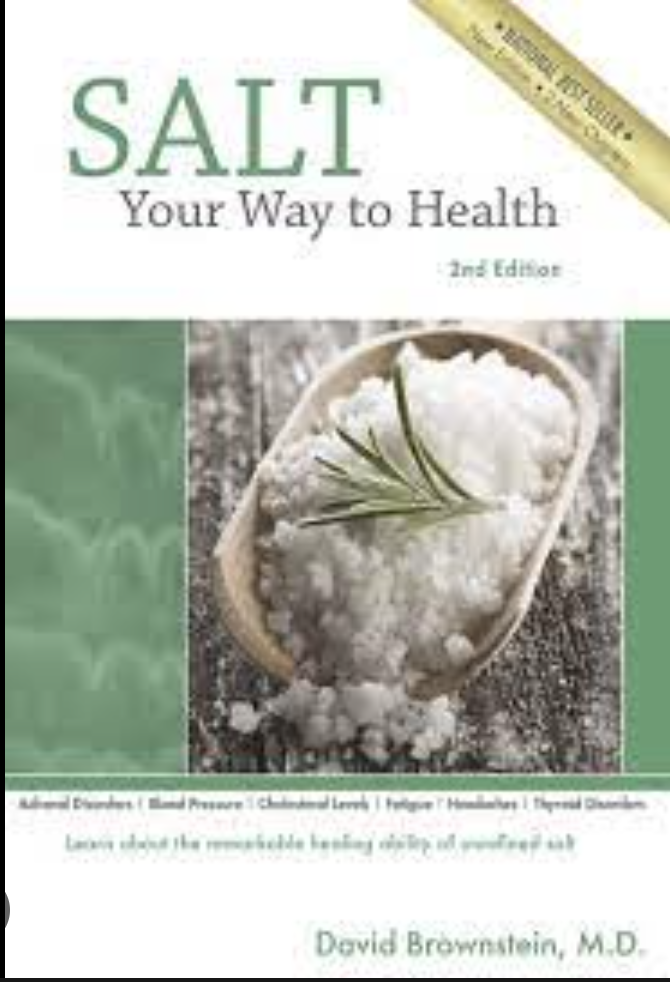
.
Below is a graphic put together by the Dr. Jason Fung Fan Club, outlining some guidelines that should help you get started on your low carb diet. Notice that Dr. Fung's graph does not include calcium which is a major player in electrolyte balance.
According to Dr. James Dinicolantonio's book, WIN, not enough salt will pull calcium out of the bones and salt is required to allow calcium into the bones. According to page 82 of this book, "1/2 teaspoon of salt is lost after one hour of exercise."
I highly recommend the book, WIN if you are an athlete or wish to understand the role of electrolytes in performance. In it, he sites 2645 studies. One of which stated that athletes who consumed a high salt solution prior to cycling were able to cycle on average 20 minutes longer than those who consumed a low salt solution.
"A high salt solution is 10-20 times better than any performance boosting supplement when it comes to increasing exercise performance in the heat." Dr. James Dinicolantonio, WIN page 53
These are MINIMUM amounts of salt in the graphic below and do not pertain to athletes or people who may sweat a lot through the use of a sauna, practicing hot yoga or living in hot climates.
MINIMUM DAILY INTAKE FOR ELECTROLYTES ON A LOW CARB DIET
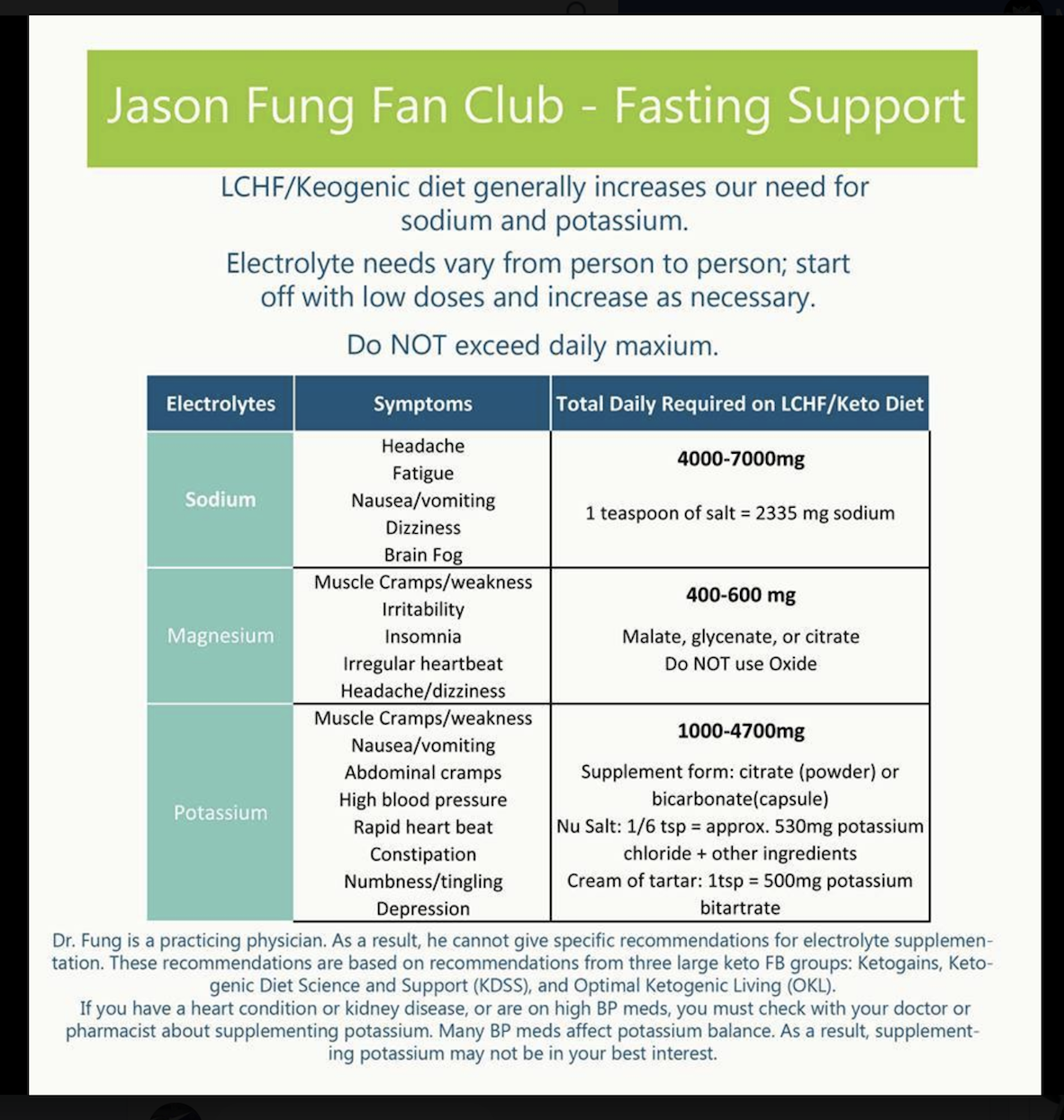
The surprising solution for osteoporosis isn't more calcium--its more salt!...
According to Dr. James DiNicolantonio, who is likely one of the THE leading authorities on hydration and electrolyte balance in the human body,
"Data in over 4,000 postmenopausal women suggests that consuming more salt is better for bone mineral density and fracture risk. And one study concluded that “higher habitual sodium intake is not detrimental for bones in older women with adequate calcium intake.”
It turns out that low-salt diets may actually harm our bones by causing magnesium and calcium loss in the urine, potentially leading to a loss of bone minerals and bone strength. In fact, one study in humans suggested that a low-salt diet depletes the body of calcium and magnesium.
The authors suggested that when we go on a low-salt diet, sodium gets pulled from the bone in order to maintain normal blood sodium levels. Unfortunately, calcium and magnesium get pulled with the sodium. Basically, a low-salt diet may cause osteoporosis by stripping our bones of calcium, magnesium, and sodium.
Low salt levels in the blood and poor glucose control are both associated with higher fracture risk." Read full article.
The Best Potassium Supplements of 2023 for Cramping, Fatigue and More
While potassium can improve heart health and leg cramps, it can be hard to get from food alone. Here were the top picks for best potassium supplements.
Best Potassium Supplement of 2023:
- Best Potassium Supplement for Leg Cramps: Solgar Potassium
- Best Potassium Supplement for High Blood Pressure: Nature Made Potassium Gluconate
- Best Potassium Supplement with Magnesium: Life Extension Potassium with Magnesium
- Best Liquid Potassium Supplement: Eidon Potassium Liquid Concentrate
- Best Potassium Supplement for Athletes: Country Life Calcium Magnesium Potassium
- Best Potassium Supplement for Water Retention: NOW Foods Water Out
- Best Potassium Supplement for Improving Metabolism: Swanson Ulta Potassium Citrate
Let's See What The Experts Have To Say About Salt, Minerals and Iodine
To salt or not to salt?
Eating less salt may lower your blood pressure a little.
However, despite various trials showing a slight reduction of blood pressure with lower sodium diets, we lack definitive evidence that less salt in our food will reduce the risk of heart disease or death.
In addition, it’s unclear if sodium reduction is as important as increasing potassium.
Some studies suggest that the sodium-to-potassium ratio is better at predicting cardiovascular disease and death than the intake of either nutrient alone.Regardless of whether sodium or potassium is more important, we should note that much of the salt we ingest comes from fast food, ready-made meals, bread and soft drinks. Therefore, most low-carb diets automatically lower salt intake, because these foods are avoided.
Furthermore, when starting a low-carb diet, insulin levels tend to drop, which is thought to help explain why blood pressure drops on low carb.Lastly, large observational trials, such as the PURE study, suggest that the risk of heart attack and death increases with sodium intakes less than 3000mg and greater than 7000mg per day. Moderate intakes between these amounts were not associated with increased risk.
With all the conflicting evidence, it’s unclear whether you will become healthier by eating less salt. However, if you stick to a low-carb diet, you should be able to enjoy salt in moderation (4-7 grams of sodium per day or about 2 to 3 teaspoons of salt) without excess risk. (Read full article on the Diet Doctor Blog)
How much salt should you eat?
Both published research and anecdotal evidence have shown that the response to salt intake varies from person to person.
If you have salt-sensitive hypertension, congestive heart failure, or kidney disease, it may be best to avoid eating more than four grams of sodium per day. However, the amount that’s best for you may require some experimentation, in coordination with your medical provider. Also, keep in mind that eating a high-quality, carb-restricted diet may potentially improve blood pressure, cardiovascular function, and kidney health much more than restricting salt.
If you don’t have any of these conditions, there isn’t any convincing evidence that sodium restriction is beneficial when following a minimally processed low-carb diet.
Consuming about 4 to 7 grams of sodium (about 2 to 3 teaspoons of salt) per day is where many people in the low-carb community will feel and perform the best. If you are an athlete in training or sweating a lot each day through hot yoga or using a sauna you may need double that amount.
Occasionally, you may need to further increase sodium intake to replenish salt losses during the first few weeks of a ketogenic diet, during hot weather, or after strenuous physical activity. Just keep in mind that if you have salt-sensitive hypertension, you will need to be more cautious than most.
(Read full article on the Diet Doctor Blog)
Diabetes and prediabetes
Since people with diabetes are at increased risk for both heart and kidney disease, they are usually advised to limit their salt intake. At one time, the American Diabetes Association recommended that individuals with diabetes aim for less than 1,500 mg of sodium per day; however, this was modified to 2,300 mg per day in the 2019 Standards of Care in Diabetes based on the lack of evidence supporting further restriction.
Overall, the evidence to date seems to suggest that salt restriction doesn’t improve diabetes outcomes.
- Observational studies suggest potential increase in heart disease and mortality risk. One 2011 study found that people with type 2 diabetes who consumed the least sodium had an increased risk of early death from heart disease or other causes compared to those who consumed the most sodium. Another 2011 study in people with type 1 diabetes reported that both the highest and lowest intakes of sodium were linked to an increased risk of early death and developing kidney disease.
- Experimental study outcomes are mixed. Of the few RCTs available, some have found that sodium restriction may lead to small improvements in blood pressure and kidney function in people with type 2 diabetes.High-quality research on salt restriction in type 1 diabetes is even more scarce, but two small studies suggest that restricting salt may have adverse effects on kidney health.Although a meta-analysis of RCTs in people with type 1 and type 2 diabetes found that sodium restriction helped reduce blood pressure, the largest effects were seen in people with normal blood pressure, for whom further blood pressure reduction might be of limited or no value. In addition, the median duration of salt restriction was one week; we know from longer trials that the effect of salt restriction on reducing blood pressure tends to wane over time.
- Health risks of high sodium intake may depend on blood sugar control. One study in Japanese men with type 2 diabetes found an association between higher sodium intakes and greater heart disease risk, but this only applied to those with extremely poor diabetes control (HbA1c of 9% or greater); no relationship was found between high salt intake and CVD in those with lower HbA1c’s.
- Increased insulin resistance: Controlled studies have found that eating too little salt may worsen insulin resistance in adults with type 2 diabetes or exacerbate impaired glucose tolerance in people with prediabetes.Remember that sodium restriction may triggers the adrenal glands to release aldosterone and noradrenaline, which may lead to reduced insulin sensitivity.
In short, avoiding very high sodium intakes greater than 6 grams a day (15 grams of salt) may be beneficial for people with diabetes who have salt-sensitive hypertension. Sodium restriction in everyone else with diabetes, however, is less proven and has the potential to do more harm than good. (Read full article on the Diet Doctor Blog) New Paragraph
Start Producing Ketones In 5 Days
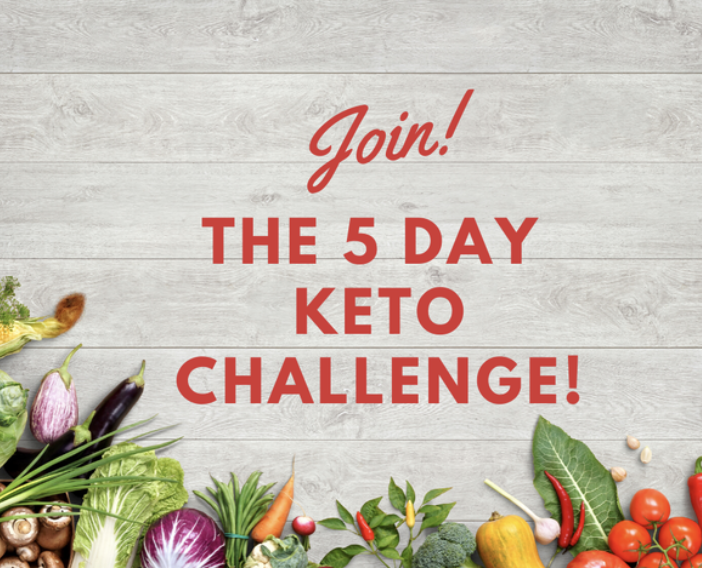
Contact Us
Connect with me on social media...
Linkedin: www.linkedin.com/in/mary-beauchamp-rn
FB Page: https://www.facebook.com/ketogenicdietcoach
YouTube Channel: http://www.youtube.com/c/MaryBeauchampRN
Instagram: https://www.instagram.com/ketogenicdietcoach/
Twitter:
https://twitter.com/ketodietcoach
Mary Beauchamp
Best Selling Author
Registered Nurse
Ketogenic Diet Specialist
GAPS™Certified Practitioner
(Gut and Psychology Syndrome)
Mary Beauchamp’s deepest intention is to set people free. Her mission is to make people aware and conscious so that with that awareness, they can begin to heal and live deeply meaningful, integrated and empowered lives.
Drawing from her experiences growing up on a farm, raising her four children and traveling the world, her work provides a road map for health transformation through unlocking the body’s innate intelligence to heal and thrive.
Mary works with a team of Naturopathic doctors. She offers coaching programs, and retreats. You can learn more about her work by visiting her website, www.ketogenicdietcoach.com. Mary is passionate about re-educating people about nutrition. She invites you to experience your body as a master communication system and facilitates this sacred encounter within.










